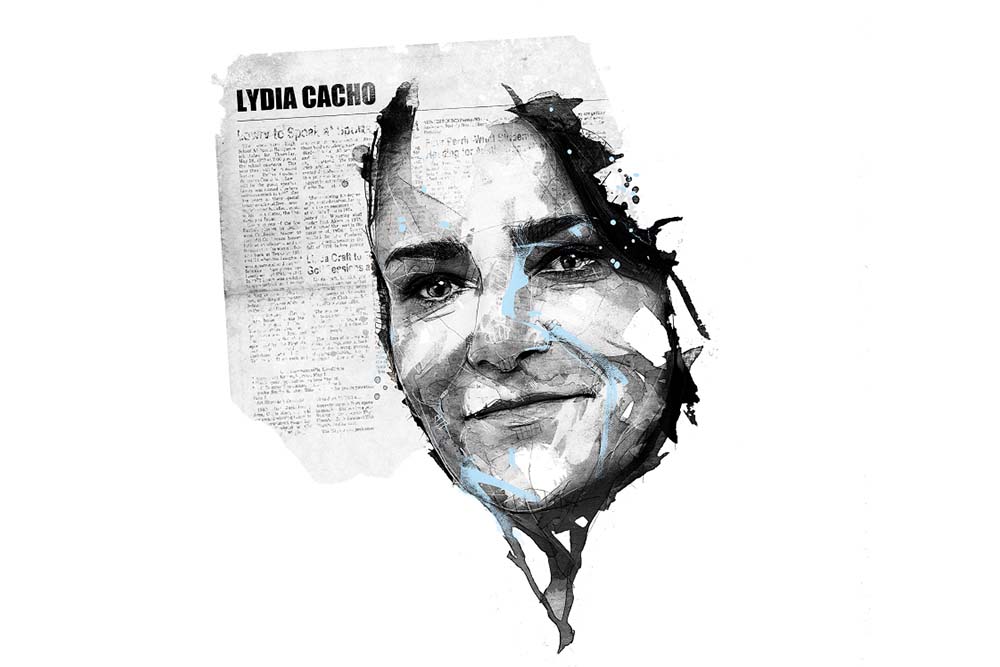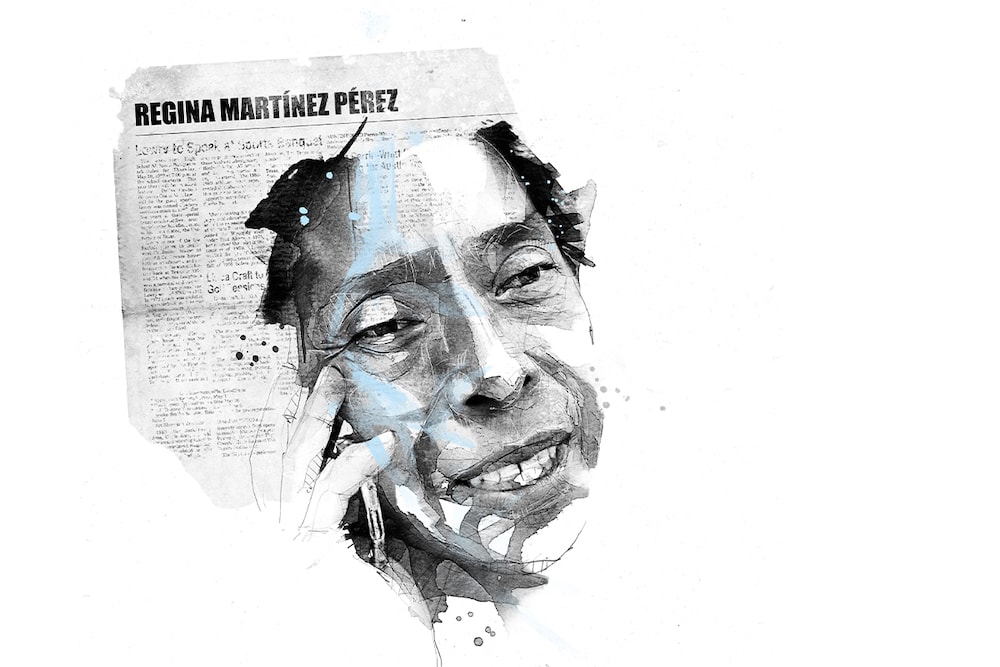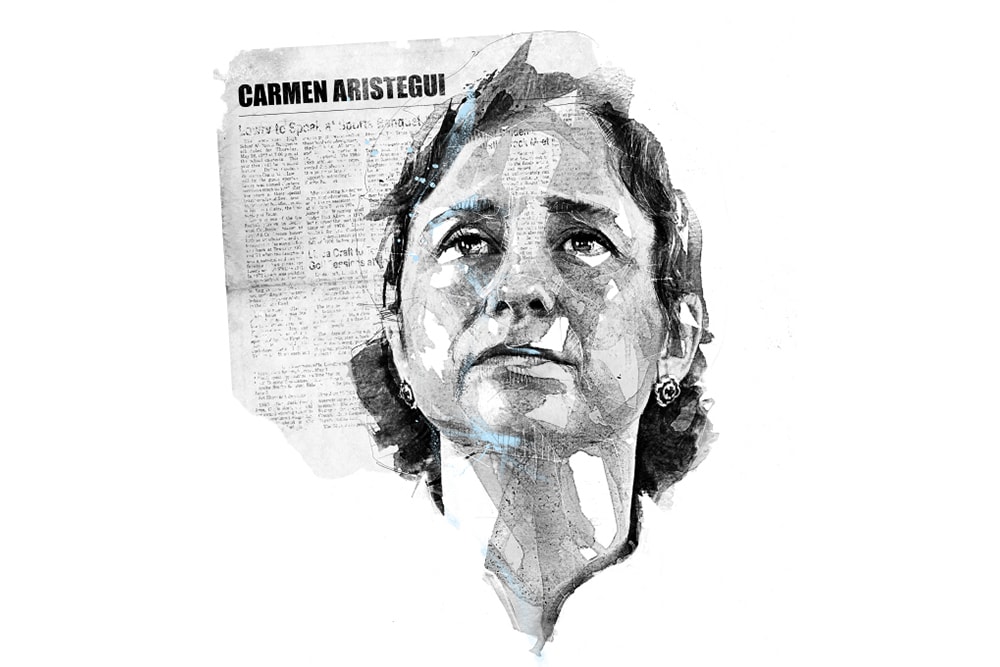Living and working in one of the world's most dangerous places for journalists, women's rights activist and writer Lydia Cacho works tirelessly to expose sexual abuse against women and children, bringing their violators to account.
Lydia Cacho responding to the murder of her friend, the Mexican photojournalist Rubén Espinosa: Only those who live under death threats know how the clock marks the hours differently. Not only does it imply living with fear, but it also goads the spirit of self-censorship that makes us ask: Is it worth it? Is exposing yet another atrocity in a country of despicable leaders really worth the risk?
In Mexico, investigative journalists are often murdered, and the level of femicide has been described as a pandemic. In this dangerous environment, women’s rights activist and writer, Lydia Cacho, stands out for her clarity, and her sureness of purpose in exposing sexual abuse against women and children, bringing their violators to account. Her immense courage and willingness to be a high profile advocate has led her to become one of Mexico’s most well known journalists and has earned her worldwide respect.
In 2000, Cacho set up Centro Integral de Atención a las Mujeres (CIAM) in the Cancún tourist resort region. Her own experience of brutal rape a year earlier had spurred her into setting up the centre, which gives shelter and advice to women and children who have suffered violence and sexual exploitation. Cacho writes for a number of newspapers, edits magazines and hosts television programs that give her a platform that ensures that the deep-set problems faced by vulnerable women and children are not sidelined. For this, she has suffered death threats and harassment, threats that have extended to survivors of abuse and staff at the shelter. It takes courage to enter, whether as a victim or a staff member, and armed guards have had to be deployed at the building.
It was through her work with CIAM that Cacho uncovered an international paedophile ring. Frustrated when the authorities did not respond to her concerns, in 2005 she published The Demons of Eden: the power behind pornography, that disclosed the existence of an international child pornography network operated with the complicity of Mexican businessowners, police and local politicians.
One of those she named, businessman José Camel Nacif Borge, took her to court, accusing Cacho of defamation and calumny, and, in December 2005, she was taken from the CIAM office by police, bundled into a car in which she was driven 900 miles to Puebla, a 20-hour journey during which time she endured threats, sexual and verbal abuse. She was freed on bail the next day. The case was dropped in 2007. In 2005, audio recordings had been discovered revealing that Camel Nacif had conspired to have her arrested. He can be heard congratulating the governor of Puebla for arresting her. The content of the tapes was deemed unsubstantiated and the authorities dismissed them. No action was taken.
Undaunted, Cacho went on to publish six more books, including in 2007, Memorias de Una Infamia (Memories of an Infamy) about her arrest and trial; in 2010, Esclavas del Poder (Slaves of Power) about the sex trade; and in 2012, Slavery Inc. a study of international sex trafficking networks. Each time she publishes, she is faced with further threats and her calls for authorities to take action have been met with indifference.
Cacho is inspired by her mother, who was a feminist who worked with women in poor communities. Cacho herself now runs workshops on how to help trafficking victims, and has published the Manual to Prevent, Detect and Heal Child Sexual Abuse (Con Mi Hijo No). CIAM continues to provide shelter for desperate women and children in fear for their lives.
Cacho’s work has earned her a host of awards among them the 2008 UNESCO Guillermo Cano Press Freedom Prize, the 2010 World Press Freedom Hero Award and, in 2013, France’s Legion of Honor. In 2016, Cacho won both the Cortes de Cádiz prize and the ALBA/Puffin Award for Human Rights Activism.
Recognition and awards, however, are not the only things Cacho has accumulated in her career. The threats she receives as a result of her work also keep coming. In July 2017, she was threatened by an unidentified individual in the state of Quintana Roo. At the time Cacho was continuing an investigation into the presence of armed men on lands located in the area of Punta Brava.
The new threat triggered alerts at the international level and PEN International, along with other organisations, called on the Mexican government to fulfill its duty to protect the activist.
In 2018, the United Nations Human Rights Committee recognized the violation of Cacho’s human rights, and in January 2019, the current Mexican administration publicly apologized to Cacho for her arbitrary arrest.
For years, Mario Marín, who governed the central state of Puebla from 2005 to 2011 for the Institutional Revolutionary Party, moved freely in public despite Cacho’s allegations. Finally, in 2019, a judge in Quintana Roo issued a warrant for his arrest. In February 2021, Marín was arrested in Acapulco and transported to a jail in Cancun, charged with human rights violations in relation to the illegal arrest and torture of Lydia Cacho.
Two police officers accused of carrying out the torture are reportedly in custody and awaiting trial. Neither Marín nor the other suspects have publicly responded to the allegations.
In an interview with the Associated Press, Leopoldo Maldonado, director of IFEX member ARTICLE 19 Mexico and Central America – an organization that provides legal support in Cacho’s case – said that Marín’s trial could be a “watershed” that “cracks open the impunity pact that has prevailed in Mexico for decades”.
Despite these advancements in Mexican justice, Cacho had to go into exile to ensure her safety. She has been living in Spain since 2019.
In May 2024, the Center for Global Security Studies and the Spanish Society for Global Security Research awarded her a prize in recognition of her courage and the importance of investigative journalism with a gender perspective.
Illustration by Florian Nicolle


